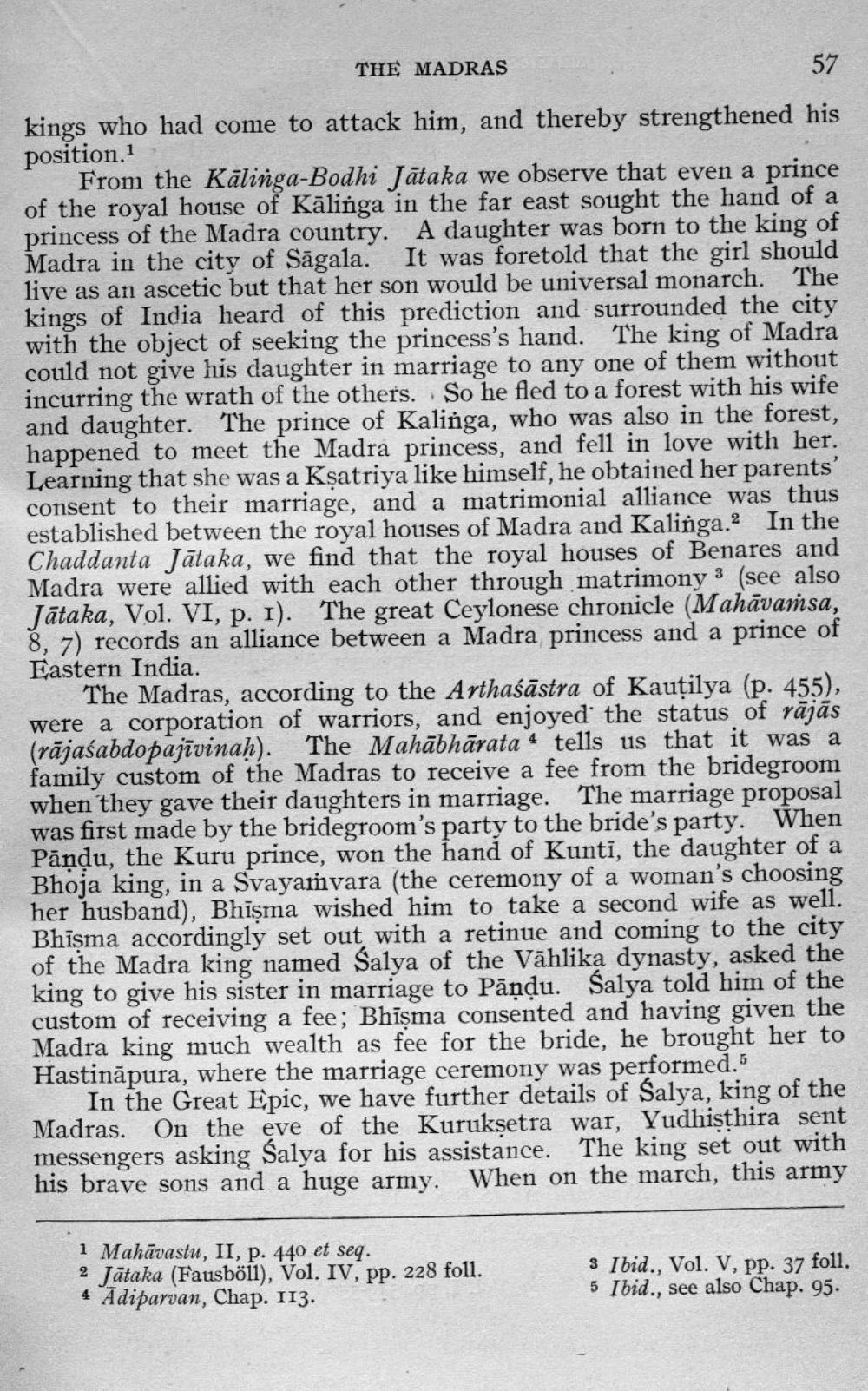________________
57
kings who had come to attack him, and thereby strengthened his position.1
THE MADRAS
From the Kalinga-Bodhi Jataka we observe that even a prince of the royal house of Kalinga in the far east sought the hand of a princess of the Madra country. A daughter was born to the king of Madra in the city of Sagala. It was foretold that the girl should live as an ascetic but that her son would be universal monarch. The kings of India heard of this prediction and surrounded the city with the object of seeking the princess's hand. The king of Madra could not give his daughter in marriage to any one of them without incurring the wrath of the others. So he fled to a forest with his wife and daughter. The prince of Kalinga, who was also in the forest, happened to meet the Madra princess, and fell in love with her. Learning that she was a Ksatriya like himself, he obtained her parents' consent to their marriage, and a matrimonial alliance was thus established between the royal houses of Madra and Kalinga.2 In the Chaddanta Jataka, we find that the royal houses of Benares and Madra were allied with each other through matrimony 3 (see also Jātaka, Vol. VI, p. 1). The great Ceylonese chronicle (Mahavamsa, 8, 7) records an alliance between a Madra, princess and a prince of Eastern India.
The Madras, according to the Arthasästra of Kautilya (p. 455), were a corporation of warriors, and enjoyed the status of rājās (rajasabdopajivinah). The Mahabharata tells us that it was a family custom of the Madras to receive a fee from the bridegroom when they gave their daughters in marriage. The marriage proposal was first made by the bridegroom's party to the bride's party. When Pandu, the Kuru prince, won the hand of Kunti, the daughter of a Bhoja king, in a Svayamvara (the ceremony of a woman's choosing her husband), Bhisma wished him to take a second wife as well. Bhisma accordingly set out with a retinue and coming to the city of the Madra king named Salya of the Vahlika dynasty, asked the king to give his sister in marriage to Pandu. Salya told him of the custom of receiving a fee; Bhisma consented and having given the Madra king much wealth as fee for the bride, he brought her to Hastinapura, where the marriage ceremony was performed.5
In the Great Epic, we have further details of Salya, king of the Madras. On the eve of the Kurukṣetra war, Yudhisthira sent messengers asking Salya for his assistance. The king set out with his brave sons and a huge army. When on the march, this army
1 Mahavastu, II, p. 440 et seq.
2 Jātaka (Fausböll), Vol. IV, pp. 228 foll. 4 Adiparvan, Chap. 113.
3 Ibid., Vol. V, pp. 37 foll.
5 Ibid., see also Chap. 95.




